
In the realm of pig farming, biosecurity isn’t just best practice; it’s a necessity. For South African farmers, the risks posed by diseases like African swine fever (ASF) and foot and-mouth disease (FMD) demand rigorous biosecurity measures from the very beginning.
Yet biosecurity is only one component of a successful pig farm. To thrive in a competitive market and meet the criteria of local and international buyers, farmers must also ensure nutritional standards and sustainable practices are prioritised.
To delve deeper into these essentials of pig farming, JD Mostert, a consulting swine nutritionist at CS Vet, and Dr Stefan Steyn, a technical and regulatory veterinarian at Afrivet, share their insights with Farmer’s Weekly.
BIOSECURITY: THE NONNEGOTIABLE FOUNDATION
Mostert emphasises the importance of biosecurity in pig farming: “If you don’t have biosecurity, don’t start farming pigs at all.”
The primary role of biosecurity is to act as a prevention barrier, stopping disease from entering the farm. Should disease make its way onto the farm, however, biosecurity then acts as a protection barrier, stopping the spread of the disease among all the animals in the herd. Steyn says biosecurity involves “physical and procedural barriers between the farm and the biological challenges of the outside world”.
In the case of ASF, for example, the disease can spread rapidly if robust biosecurity measures are not in place. As ASF has a high mortality rate, farmers can expect to lose most, if not all, of their pigs. This is obviously devastating to the farmer’s operation and could lead to the farmer having to exit the industry.
In diseases like FMD, which does not have a high mortality rate, biosecurity measures are equally important. FMD can result in reduced production, compromised feed intake and decreased feed conversion efficiency, causing massive economic losses for farmers.
This story is from the November 29, 2024 edition of Farmer's Weekly.
Start your 7-day Magzter GOLD free trial to access thousands of curated premium stories, and 9,000+ magazines and newspapers.
Already a subscriber ? Sign In
This story is from the November 29, 2024 edition of Farmer's Weekly.
Start your 7-day Magzter GOLD free trial to access thousands of curated premium stories, and 9,000+ magazines and newspapers.
Already a subscriber? Sign In

Agripreneur wins top award for butternut coffee
Bloemfontein-based agripreneur Chantelle de Bruyn has achieved global recognition.
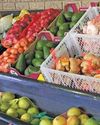
Final fresh produce inquiry pins low level of transformation on farming environment
The Competition Commission released its final report on the Fresh Produce Market Inquiry in mid-January, maintaining that transformation in the industry was being impeded by a lack of support for emerging farmers.

Illegal fishing in Australia reveals market gap for farmed sea cucumber
Illegal fishing practices in Australia have revealed a large market opportunity for sea cucumber farming.

An introduction to the Ford Ranger Tremor
In December 2024, the CAR magazine team received the Ford Ranger Tremor to accompany them through the festive season and into the new year. Oliver Keohane looks at what the Tremor is all about.
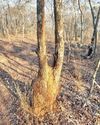
A farmer's experience with bush encroachment
Farmer David Addenbrooke has worked in the Zimbabwean beef industry for around four decades. Here, he relates his experience with bush encroachment and offers farmers some advice on battling this scourge.
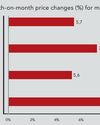
Good rains boost SA's summer grain crop prospects
This week, Absa AgriBusiness analyses several market dynamics and shares its expectations for local grain and oilseed prices over the coming months.
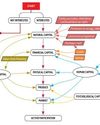
A self-help tool for getting young people engaged in agriculture
The active engagement of the youth in agriculture is pivotal to the sustainability and growth of the sector. Empowering them with the necessary support is key to nurturing future farmers who are equipped to overcome future challenges like the effects of climate change.Dr Primrose Madende, researcher at the Department of Agricultural Economics at the University of the Free State
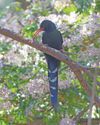
Rallying to the cackle of this raucous bird
The gregarious and territorial Green Wood-hoopoe, also known as the Red-billed Wood-hoopoe, is extremely vocal and is often heard before it is seen. And for very good reason,

SA coffee lovers can expect price increase
South African coffee prices are expected to spike sharply in the foreseeable future because of failed crops in the country’s main importing countries: Brazil and Vietnam.
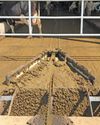
Paving the way for a greener dairy industry
The dairy industry is often criticised for its environmental impact, but a new innovation called DESTiny aims to empower farmers to take control of their carbon footprints. Riana Reinecke, the tool's developer, explained to Glenneis Kriel how it works and how farmers can benefit from it.